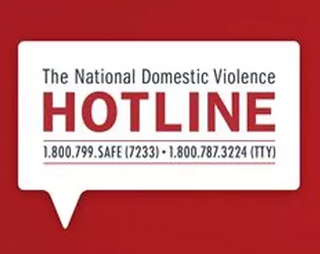Resources
Below are resources to help connect you with mental health providers, procure financial assistance, and connect you to other sources of support and empowerment. The CARE Lab does not evaluate nor endorse any of these resources. Please use your own judgement to evaluate them and their fit for your needs.
Find a Therapist
National directories with many identity-relevant filters
Psychology Today has a search engine for therapists. Click on “More” filters to select therapist ethnicity, sexual orientation, language, or faith. Click on “Issues” to select for treatment of people with specific disabilities.
Inclusive Therapists has a search engine that allows you to search for a therapist based on your identity.
Ayana Therapy helps people from marginalized and intersectional communities find mental health care.
Providers for Anxiety and Depression
Association for Behavioral and Cognitive Therapies (ABCT) has a Cognitive Behavioral Therapy (CBT) Therapist directory.
Anxiety & Depression Association of America (ADAA) has a therapist directory.
International Obsessive Compulsive Disorder Federation (IOCDF) has a therapist directory for both in person and telehealth providers.
Social Support
-
Anxiety and Depression Association of America (ADAA) has an anonymous peer to peer online support group for individuals and families to share information and experiences.
-
Anxiety and Depression Association of America (ADAA) has a library of support groups that exist across America that can occur in person or virtually.
-
National Association of Mental Illness (NAMI) Connection Recovery Support Group is a free, peer-led support group for any adult who has experienced symptoms of a mental health condition. Many support groups are virtual, and attendance is open to everyone across the country.
-
National Association of Mental Illness (NAMI) Family Support Group is a free, peer-led support group for any adult with a loved one who has experienced symptoms of a mental health condition. Gain insight from the challenges and successes of others facing similar experiences. Many support groups are virtual, and attendance is open to everyone across the country.
-
National Association of Mental Illness (NAMI) - In Our Own Voice is a video segment with free, 40-, 60- or 90-minute presentations provide a personal perspective of mental health conditions, as leaders with lived experience talk openly about what it's like to have a mental health condition.
-
National Association of Mental Illness (NAMI) – Family & Friends is a free 90-minute or four-hour seminar that informs people who have loved ones with a mental health condition how to best support them. It’s also an opportunity to meet other people in similar situations and gain community support. Search for upcoming seminars in your area with this link.
-
Depression and Bipolar Support Alliance (DBSA) has online support groups that provide people living with depression and bipolar disorder a place to share experiences, discuss coping skills, and offer hope to one another. DBSA support groups are peer-led, meaning they are facilitated by someone living with a mood disorder. You will need to create an account with Support Groups Central to join.
-
Depression and Bipolar Support Alliance (DBSA) has a list of local online support groups led by a local support group facilitator from anywhere across the country. You do not need to live locally to attend these groups.
-
Depression and Bipolar Support Alliance (DBSA) provides online support groups for friends, family, and caregivers supporting loved ones with mood disorders. You will need to create an account on Hey Peers to join.
-
The International Obsessive-Compulsive Disorder Federation (IOCDF) has a resource directory that lists over 400 support groups for OCD and related disorders around the world. Groups are offered for individuals with the disorder, in addition to their family, loved ones, and caregivers. To filter for support groups, click “Types” and select “Support Groups”.
-
The International Obsessive-Compulsive Disorder Federation (IOCDF) provides online and phone support groups. For many years, a small group of dedicated volunteers have been managing dozens of online support groups covering many different OCD and related disorders topics. All groups are moderated and occasionally visited by therapists who treat OCD and OC related disorders.
-
The International Obsessive-Compulsive Disorder Federation (IOCDF) offers guidance on how to start a support group of your own if you cannot find one in your area.
-
The Mighty is a growing community of people with lived experience sharing their honest stories. We help people connect with others around mental health, chronic illness, rare disease, disability, and more.
-
Depression Looks Like Me is a program that aims to educate and empower people with depression. This program offers a platform where people can share their unique experiences and show that their stories matter and that others are not alone.
Resources for parents
Unsure of how to talk to your child about mental health? These guides may be able to help:
-
"How to Talk to Kids About Mental Health" by the National Council of Mental Wellbeing
-
"How to Talk to Your Child About Their Mental Health" by the National Alliance on Mental Health
Mental Health Organizations
Financial Resources
Mental Health Resources for Coping with Discrimination
Compilation of Resources/Toolkit
The Mighty offers a digital tool kit on how to prioritize mental health for the BIPOC Community, but may be relevant and helpful to people of various identities struggling with mental health.
Bad Bitches Have Bad Days Too offers a compilation of resources for people of various identities struggling with mental health
Guides/Blogs
Washington University has a guide to coping with discrimination.
National Association of Mental Illness (NAMI) has a collection of blog posts on mental health that you can filter by various categories.
Inclusive Therapists has a mental health blog.


























